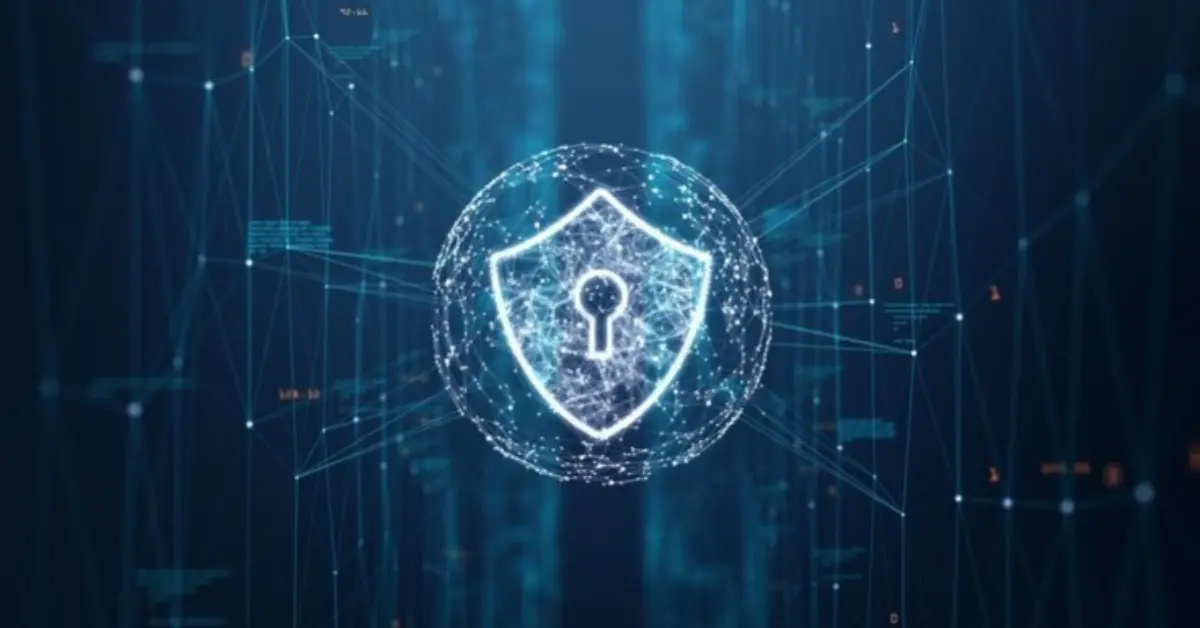Introduction
In an era where the internet plays a pivotal role in shaping our daily lives, the question of who controls the web becomes increasingly significant. Internet governance, the set of rules and principles governing how the internet operates, is a complex and dynamic landscape. In this article, we delve into the intricacies of internet governance, shedding light on the key players and mechanisms that influence the destiny of the World Wide Web.
The Origins of Internet Governance
The origins of internet governance can be traced back to the early development of the internet itself. The internet emerged from research and development efforts in the 1960s, particularly with the creation of the ARPANET (Advanced Research Projects Agency Network) by the United States Department of Defense. The ARPANET was the first network to use packet-switching technology, laying the foundation for the modern internet.
As the internet expanded, the need for coordination and standardization became evident. The early internet was a decentralized network, and various protocols were developed to enable communication between different computer systems. In 1983, the adoption of the Transmission Control Protocol (TCP) and Internet Protocol (IP) standards helped to create a common framework for networking, leading to the formation of the Internet Engineering Task Force (IETF) in 1986. The IETF played a crucial role in developing and maintaining internet standards.
The Domain Name System (DNS) was introduced to map human-readable domain names to IP addresses, making it easier for people to access websites. The management of domain names and IP addresses became a significant aspect of internet governance. In 1998, the Internet Corporation for Assigned Names and Numbers (ICANN) was established as a non-profit organization to oversee the domain name system, IP address allocation, and other aspects of internet infrastructure.
Another important development in the history of internet governance was the establishment of the World Summit on the Information Society (WSIS) in 2003. WSIS aimed to address global issues related to the information society, including internet governance. The Internet Governance Forum (IGF) was subsequently created as a platform for multi-stakeholder discussions on internet governance issues.
Over time, discussions about internet governance have evolved, involving governments, private sector entities, civil society, and technical experts. The concept of a “multi-stakeholder” approach gained prominence, emphasizing the involvement of various stakeholders in decision-making processes. However, debates continue about the appropriate balance between state control and decentralized, bottom-up governance.
In summary, the origins of internet governance can be traced back to the early development of the internet and the need for coordination and standardization. The establishment of organizations like ICANN and forums like the IGF reflects the ongoing efforts to address the diverse and global nature of the internet and its governance.
Key Players in Internet Governance
Internet governance involves the development and application of shared principles, norms, rules, decision-making procedures, and programs that shape the use and evolution of the Internet. Key players in Internet governance operate at various levels, including international organizations, governments, non-governmental organizations (NGOs), technical communities, and private sector entities.
Here are some of the key players:
- Internet Corporation for Assigned Names and Numbers (ICANN):
- ICANN is a non-profit organization responsible for coordinating the maintenance and operational procedures of the Internet’s Domain Name System (DNS). It plays a crucial role in managing domain names and IP addresses.
- Internet Engineering Task Force (IETF):
- The IETF is a large, open international community of network designers, operators, vendors, and researchers concerned with the evolution and smooth operation of the Internet. It develops and promotes voluntary Internet standards, in particular those related to the Internet Protocol Suite (TCP/IP).
- World Wide Web Consortium (W3C):
- W3C develops and maintains web standards to ensure the long-term growth and interoperability of the World Wide Web. It focuses on issues such as HTML, CSS, and other technologies that form the basis of the web.
- International Telecommunication Union (ITU):
- ITU is a specialized United Nations agency that deals with issues related to information and communication technologies (ICTs), including global standards for telecommunications.
- Internet Governance Forum (IGF):
- The IGF is a multi-stakeholder forum that brings together various stakeholders, including governments, civil society, and the private sector, to discuss public policy issues related to the Internet. It provides a platform for dialogue on Internet governance issues.
- Regional Internet Registries (RIRs):
- RIRs are organizations responsible for the allocation and registration of IP addresses within a specific region. Examples include ARIN (North America), RIPE NCC (Europe), APNIC (Asia-Pacific), AFRINIC (Africa), and LACNIC (Latin America and the Caribbean).
- Governments and National Regulatory Authorities:
- Governments play a significant role in Internet governance, as they may enact laws and regulations that impact the use of the Internet within their jurisdictions. National regulatory authorities oversee and implement these regulations.
- Civil Society Organizations (CSOs) and Non-Governmental Organizations (NGOs):
- Various CSOs and NGOs advocate for user rights, digital freedoms, and the protection of privacy. They often participate in Internet governance discussions to ensure a balance between various interests.
- Private Sector and Industry Stakeholders:
- Companies and industry groups involved in Internet infrastructure, telecommunications, and technology development also play a vital role in shaping Internet governance policies and standards.
These players, along with many others, contribute to the complex and multi-stakeholder nature of Internet governance, where decisions are made collaboratively by representatives from different sectors and regions.
Challenges in Internet Governance
Internet governance faces several challenges due to the global and interconnected nature of the internet. Some of the key challenges include:
- Multistakeholder Cooperation: Deciding who should have a say in internet governance is a significant challenge. Traditionally, governments played a central role, but with the internet involving multiple stakeholders such as businesses, civil society, and technical experts, finding a balance that includes all perspectives is challenging.
- Jurisdictional Issues: The internet operates globally, but laws and regulations are often national or regional. Determining which laws apply in cross-border situations, especially regarding data privacy, cybersecurity, and content regulation, poses a significant challenge.
- Cybersecurity Concerns: The internet is vulnerable to cyber threats, including hacking, malware, and other malicious activities. Developing effective and globally accepted cybersecurity measures and norms is challenging, as different countries may have varying levels of technological capabilities and priorities.
- Digital Divide: Disparities in internet access and digital literacy create a digital divide between developed and developing countries. Bridging this gap and ensuring equal participation in the digital economy remains a challenge.
- Privacy and Data Protection: Protecting user privacy and establishing uniform data protection standards is a constant struggle. Divergent national regulations and conflicting privacy expectations make it challenging to create a cohesive and globally accepted framework.
- Content Regulation: Balancing the need for freedom of expression with the responsibility to curb illegal and harmful content is a persistent challenge. Determining who should decide on content standards and enforcement measures is often contentious.
- Emerging Technologies: The rapid development of technologies such as artificial intelligence, blockchain, and the Internet of Things poses new challenges for internet governance. Adapting policies and regulations to these evolving technologies requires constant vigilance and collaboration.
- Net Neutrality: Ensuring equal access to all content without discrimination by internet service providers is a ongoing challenge. Maintaining net neutrality principles is crucial for a fair and open internet, but debates and regulatory battles persist.
- Critical Internet Infrastructure: Protecting the integrity and resilience of critical internet infrastructure, such as the domain name system (DNS) and routing system, is essential. Cyber attacks or technical failures targeting these components can have severe consequences for the entire internet.
- Global Cooperation: Achieving consensus among countries with diverse cultural, political, and economic backgrounds is a significant challenge. Different nations may have conflicting interests, and finding common ground for effective global internet governance can be difficult.
Human rights and freedom of expression
In the digital age, the discourse surrounding human rights and freedom of expression has gained unprecedented importance. This SEO-optimized explanation delves into the critical relationship between these two concepts, shedding light on their interconnectedness and impact on society
- Defining Human Rights: Human rights encompass fundamental freedoms and privileges inherent to every individual, irrespective of their background or identity. These rights serve as the bedrock for creating a just and equitable society.
- Significance of Freedom of Expression: Freedom of expression, a cornerstone of human rights, empowers individuals to voice their opinions, share information, and engage in open dialogue. It is a catalyst for social progress and democratic governance.
- The Intersection: Human rights and freedom of expression intersect where individuals, regardless of their socio-economic or political standing, are granted the right to express themselves freely. This intersection is crucial for fostering inclusivity, diversity, and societal advancement.
- Challenges in the Digital Era: In the age of the internet, new challenges arise concerning the balance between freedom of expression and preventing the spread of misinformation or hate speech. Striking a balance becomes paramount to preserve both individual liberties and societal well-being.
- Impact on Democracy: Freedom of expression is integral to the functioning of democratic societies. It ensures that citizens can engage in informed decision-making, criticize government actions, and participate actively in shaping the policies that affect their lives.
- Global Implications: Human rights and freedom of expression are not confined by national borders. Issues such as online censorship, surveillance, and digital rights have global implications, necessitating international cooperation and governance frameworks.
- Role of Technology Companies: Technology companies play a significant role in shaping the digital landscape. The policies they adopt regarding content moderation, data privacy, and user rights can influence the delicate balance between freedom of expression and societal responsibility.
- Emerging Trends and Debates: Ongoing debates surrounding platform accountability, data protection, and the regulation of online spaces are shaping the future of human rights and freedom of expression. Staying informed and participating in these discussions is crucial for individuals and societies alike.
- Ensuring Inclusivity: Efforts should be made to ensure that the benefits of the digital age are accessible to all, regardless of socio-economic status, gender, or geographical location. Bridging the digital divide is essential for upholding human rights in an increasingly connected world.
- In conclusion: the intertwined nature of human rights and freedom of expression underscores the need for a thoughtful and balanced approach in the digital era. Striving for an inclusive, informed, and rights-respecting online environment is key to realizing the full potential of these foundational principles in contemporary society.



